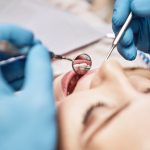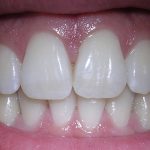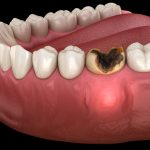Teeth Cleaning: How Often Should You Go for Optimal Oral Health?
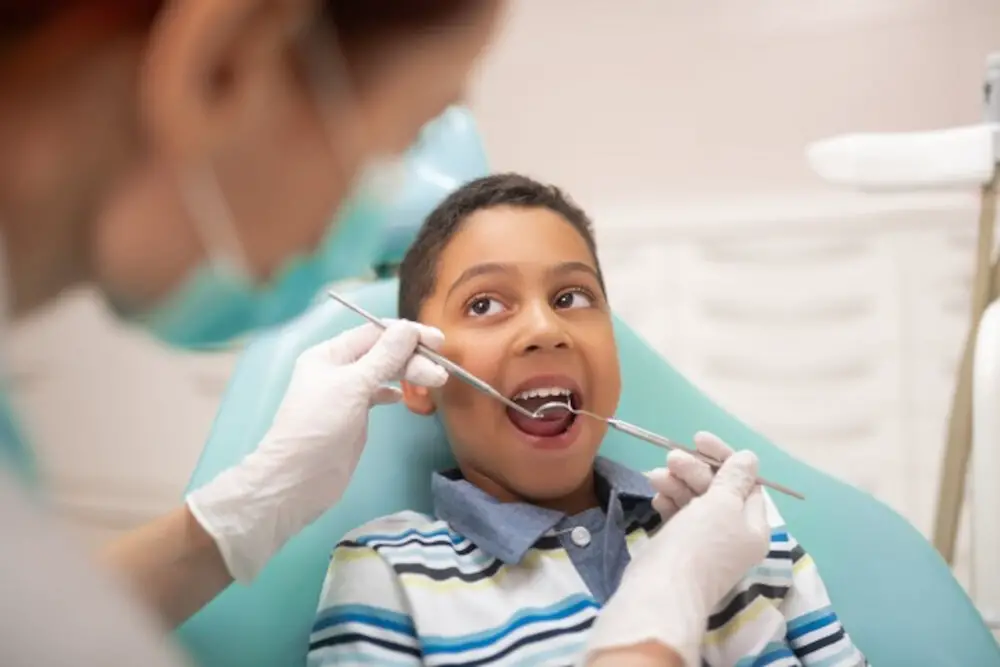
Maintaining optimal oral health is crucial for overall well-being. One of the significant aspects of oral hygiene is teeth cleaning. With the daily consumption of food and beverages, our teeth accumulate plaque and tartar, which can lead to various dental problems such as cavities, gum diseases, and bad breath. Therefore, it is essential to incorporate teeth cleaning into our daily routine. However, the question arises, how often should one go for teeth cleaning to ensure optimal oral health?The answer to this question depends on several factors, including age, dietary habits, oral health history, and genetics. For instance, children and teenagers may require more frequent teeth cleaning than adults as their teeth are still developing, and they are more prone to dental issues. Similarly, individuals who consume acidic or sugary foods and drinks regularly may need to visit their dentist more often than those who have a healthy diet. Additionally, people with a history of gum diseases or other dental problems may require more frequent teeth cleaning to prevent the recurrence of such issues. It is vital to discuss your oral health history and habits with your dentist to determine the ideal frequency of teeth cleaning for you.
Teeth cleaning is an essential aspect of oral health, as it helps to remove plaque, tartar, and bacteria that can accumulate on the teeth and gums over time. Failure to clean teeth regularly can result in tooth decay, gum disease, and other oral health issues that can cause pain, discomfort, and even tooth loss. Regular teeth cleaning can prevent such problems and help maintain healthy teeth and gums. In addition, it can also help to prevent bad breath and make teeth appear brighter and cleaner. It is recommended to get professional teeth cleaning done at least twice a year to maintain optimal oral health.
Poor dental hygiene can lead to a range of dental problems, some of which can be quite serious. One of the most common is tooth decay, which occurs when bacteria in the mouth produce acid that erodes the enamel of the teeth. Gum disease is another common issue, which can cause inflammation and bleeding of the gums. Other problems that can arise from poor dental hygiene include bad breath, tooth sensitivity, and even tooth loss. Regular teeth cleaning is essential to prevent these issues, as it helps to remove plaque and tartar buildup and keep the mouth healthy.
The recommended frequency of dental cleanings
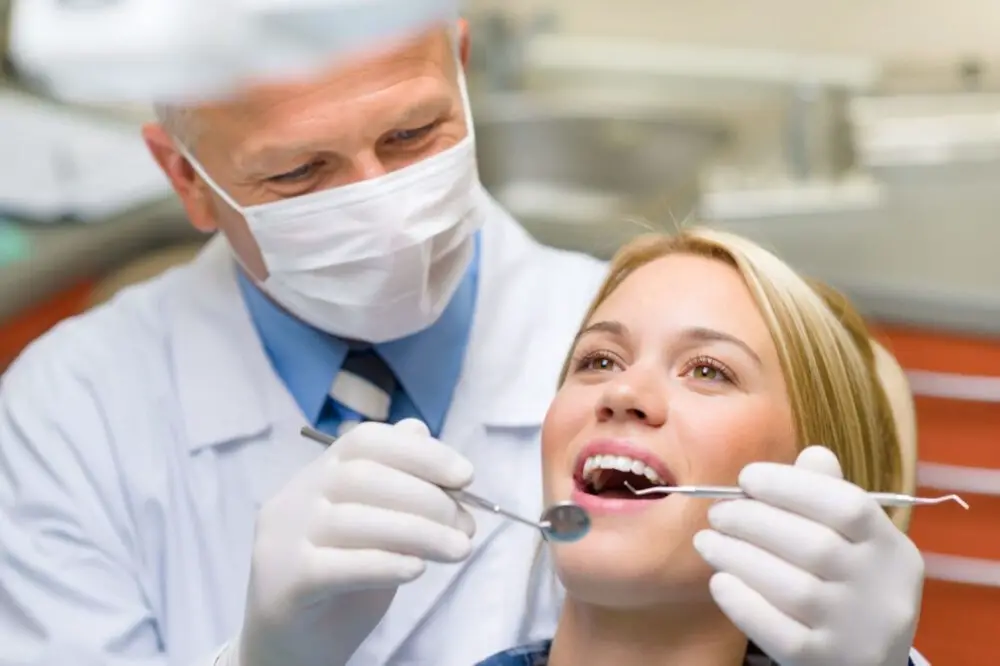
Regular dental cleanings are an essential component of maintaining optimal oral health. The recommended frequency of these cleanings can vary depending on the individual’s unique needs, but in general, it is recommended that individuals visit their dentist for a cleaning every six months. During these appointments, your dentist or dental hygienist will thoroughly clean your teeth, removing built-up plaque and tartar that can lead to tooth decay, gum disease, and other oral health issues. Additionally, they will examine your teeth and gums for any signs of problems, such as cavities or gum disease, and provide treatment as necessary. While six-monthly cleanings are the standard recommendation, some individuals may need to schedule appointments more frequently. This is especially true for those with a history of dental issues, such as cavities or gum disease, or for those who have certain medical conditions that can impact their oral health. Your dentist will be able to advise you on the optimal frequency of cleanings based on your individual needs. By prioritizing regular dental cleanings, you can ensure that your teeth and gums stay healthy and strong, and avoid more serious issues down the line.
The recommended frequency of dental cleanings varies based on age and oral health. For individuals with good oral health, it is generally recommended to have a dental cleaning every six months. However, for those with a history of gum disease or other oral health issues, more frequent cleanings may be necessary. Additionally, as individuals age, they may require more frequent cleanings due to the natural wear and tear on their teeth and gums. Ultimately, it is important to consult with a dental professional to determine the optimal frequency for dental cleanings based on individual needs and circumstances. Regular dental cleanings not only improve oral health, but can also have positive effects on overall health and well-being.
Regular teeth cleaning is crucial for maintaining optimal oral health. It helps prevent the buildup of plaque, tartar, and bacteria that can lead to gum disease, tooth decay, and bad breath. Professional teeth cleaning removes stubborn stains that cannot be removed through brushing alone, leaving your teeth looking brighter and healthier. Moreover, regular teeth cleaning can save you from costly dental procedures down the road. By detecting and treating early signs of oral health problems, such as cavities or gum disease, you can avoid more significant dental problems that may require extensive treatment. In summary, regular teeth cleaning is a simple yet effective way to maintain good oral health, prevent dental problems, and save money in the long run.
Factors that can affect how often you need to get your teeth cleaned
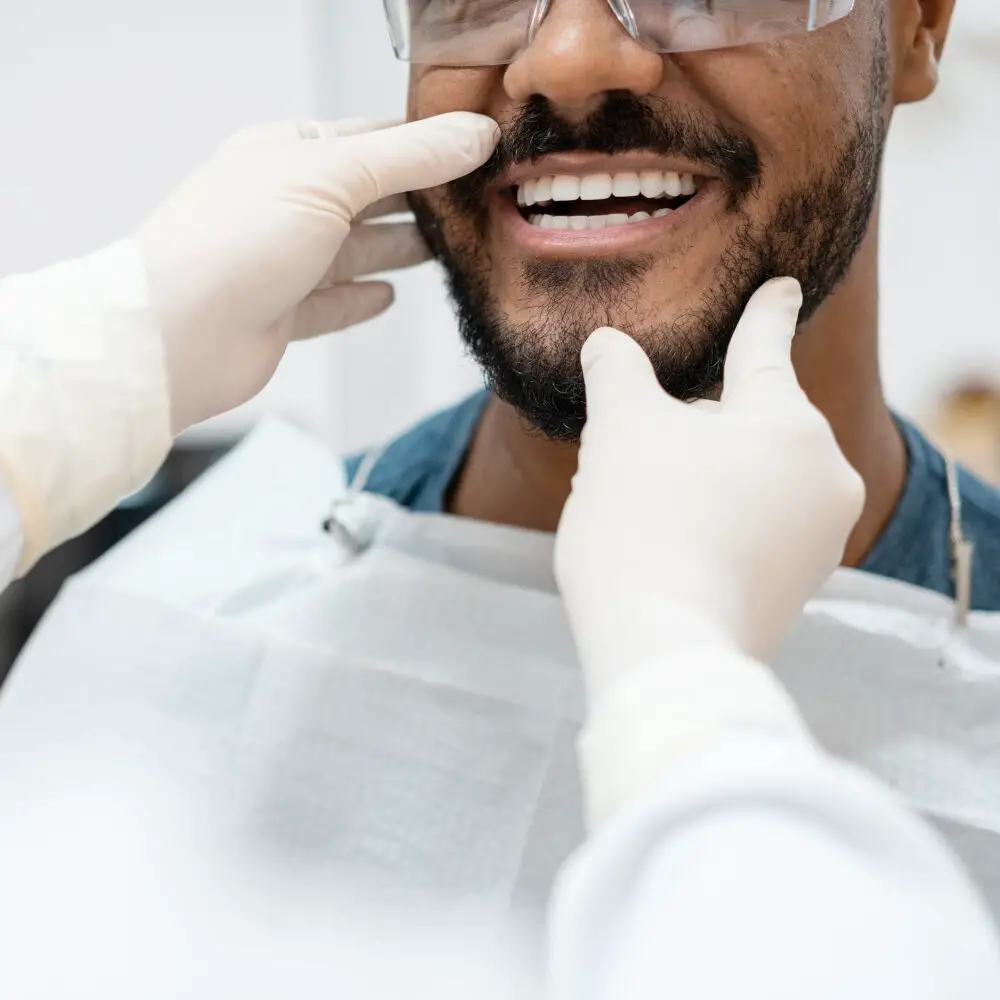
There are several factors that can affect how often you need to get your teeth cleaned. One of the most important factors is your oral hygiene routine. If you brush and floss regularly and effectively, you may be able to go longer between cleanings. However, if you don’t brush and floss regularly or effectively, you may need to get your teeth cleaned more often. Additionally, if you have a lot of plaque or tartar buildup, you may need to get your teeth cleaned more frequently. Plaque and tartar can lead to tooth decay and gum disease, so it’s important to get them removed regularly. Another factor that can affect how often you need to get your teeth cleaned is your diet. If you consume a lot of sugary or acidic foods and drinks, you may be more prone to tooth decay and may need to get your teeth cleaned more often. Conversely, if you have a healthy diet that is low in sugar and acid, you may be able to go longer between cleanings. Your dentist can help you determine how often you need to get your teeth cleaned based on your individual needs and lifestyle factors. By getting regular teeth cleanings, you can maintain optimal oral health and prevent dental problems before they start.
The frequency of teeth cleaning is influenced by various factors, including smoking, diet, and medical conditions. Smoking is known to increase the development of tartar and stain on teeth, which can lead to bad breath and tooth decay. A diet that is high in sugar and acidic foods can also contribute to the buildup of plaque and tartar, leading to cavities and gum disease. Furthermore, certain medical conditions, such as diabetes and autoimmune disorders, can affect oral health and require more frequent teeth cleaning. It is important to consider these factors and maintain good oral hygiene habits, including regular brushing, flossing, and professional cleaning, to prevent dental problems and maintain optimal oral health.
Several factors can impact oral health and necessitate more frequent dental cleanings. Poor oral hygiene habits such as irregular brushing and flossing can lead to the accumulation of plaque and tartar, which can cause tooth decay, gum disease, and bad breath. Additionally, a diet high in sugary and acidic foods and beverages can also contribute to the development of cavities and other oral health problems. Tobacco use, whether in the form of smoking or chewing, can also negatively affect oral health by increasing the risk of gum disease and oral cancer. Furthermore, certain medical conditions such as diabetes and autoimmune disorders can compromise oral health and require more frequent dental cleanings to prevent complications. By addressing these factors and practicing good oral hygiene habits, individuals can maintain optimal oral health and reduce the need for frequent dental cleanings.
Signs you may need to get your teeth cleaned more often
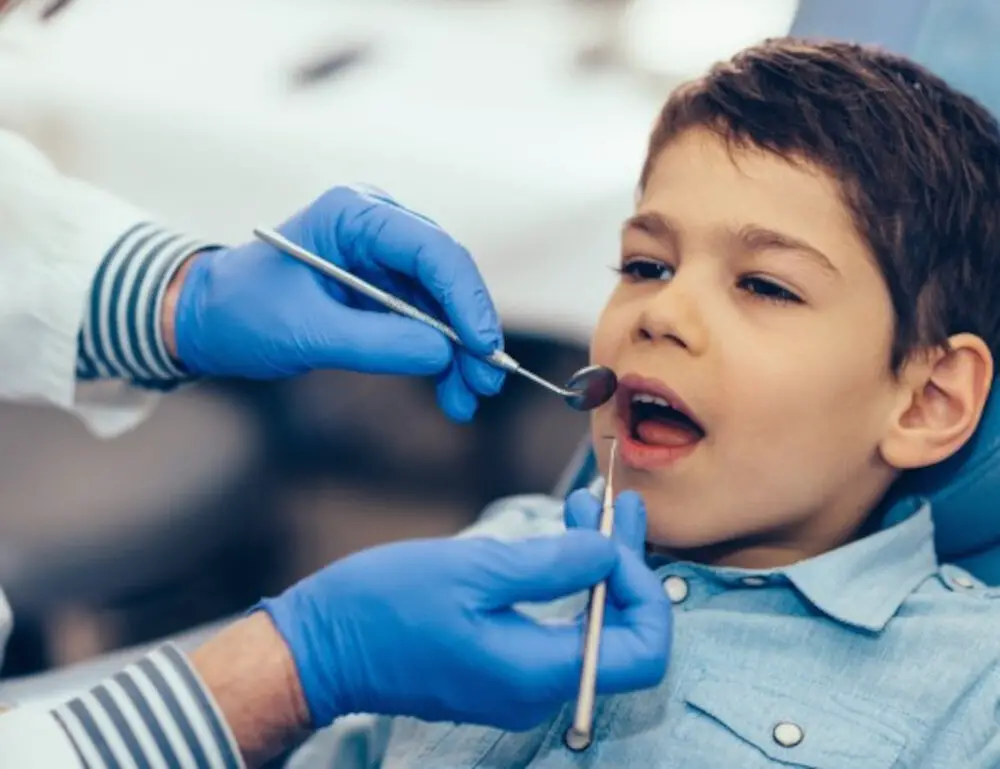
Regular teeth cleaning is crucial for maintaining optimal oral health. It helps to remove plaque, tartar, and bacteria that can lead to tooth decay, gum disease, and other dental problems. However, the frequency with which you should get your teeth cleaned depends on various factors, such as your age, oral health status, and lifestyle habits. Here are some signs that indicate you may need to get your teeth cleaned more often. Firstly, if you notice that your gums are swollen, tender, or bleeding, it could be a sign of gingivitis, which is an early stage of gum disease. If left untreated, gingivitis can progress to periodontitis, a more severe form of gum disease that can cause tooth loss. Regular teeth cleaning can help prevent and treat gingivitis by removing the plaque and tartar that accumulate along the gum line. Secondly, if you have a history of dental problems, such as cavities or gum disease, you may need to get your teeth cleaned more frequently than someone who has never had these issues. Similarly, if you smoke, use tobacco products, or consume a lot of sugary or acidic foods and drinks, you may be at a higher risk of developing dental problems that require more frequent teeth cleaning. Your dentist can help you determine how often you should get your teeth cleaned based on your individual needs and risk factors. In general, most people should get their teeth cleaned at least once every six months, but some may need to go more frequently to maintain optimal oral health.
If you’re experiencing bleeding gums, bad breath, or visible plaque buildup, it’s an indication that you may need to schedule more frequent dental cleanings. Bleeding gums can be caused by gum disease, which is a bacterial infection that can lead to tooth loss and other health problems. Bad breath can also be a sign of gum disease or tooth decay. Plaque buildup can cause tooth decay and gum disease if left untreated. Regular dental cleanings can help remove plaque buildup and prevent these issues from developing. If you’re experiencing any of these signs, it’s best to schedule an appointment with your dentist to discuss the appropriate frequency of dental cleanings for your individual needs.
Regular dental cleanings are essential for maintaining optimal oral health. Signs that indicate the need for more frequent dental cleanings include the buildup of plaque and tartar on the teeth, bad breath or a bad taste in the mouth, swollen or bleeding gums, and tooth sensitivity. Plaque is a sticky film of bacteria that forms on the teeth, and if left untreated, it can harden into tartar, which can only be removed by a dental professional. If plaque and tartar buildup are not addressed, it can lead to gum disease, which can cause tooth loss and other health problems. Therefore, it is important to have regular dental cleanings to keep your teeth and gums healthy and prevent any serious oral health issues.
The importance of athome dental care
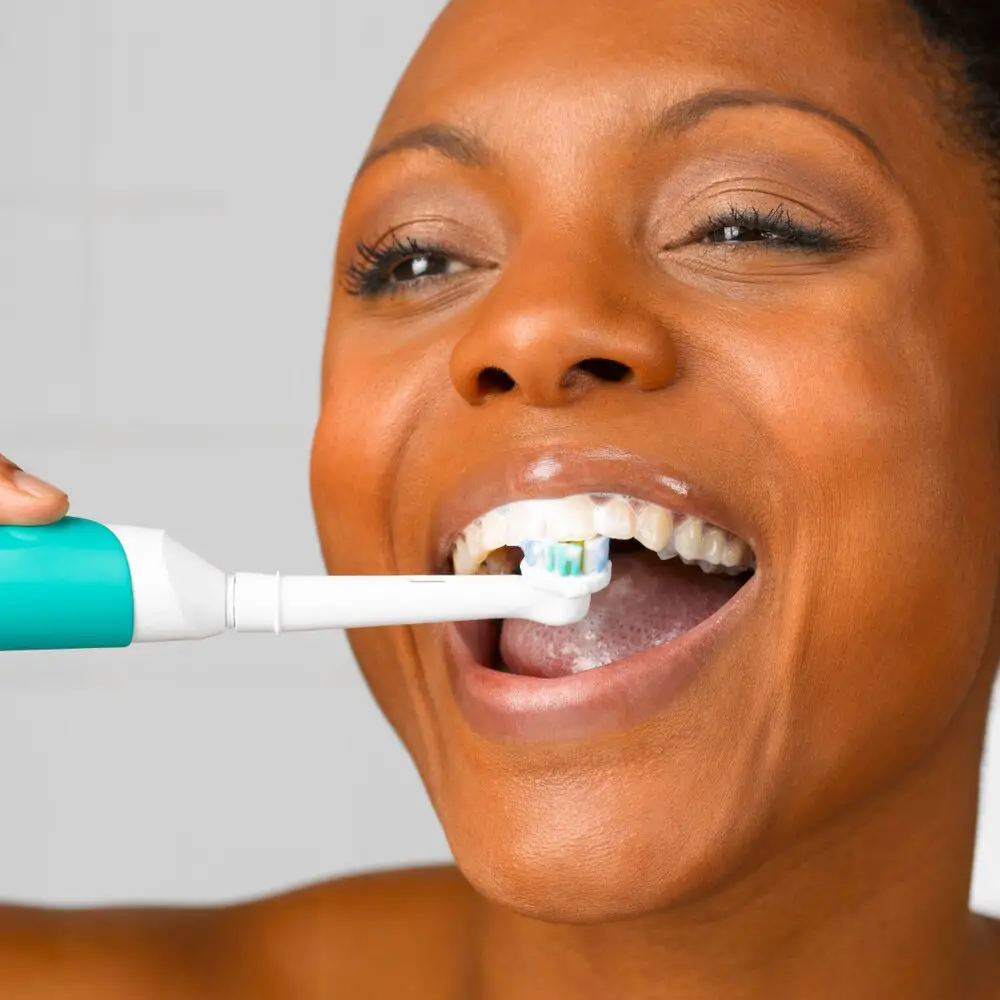
Maintaining good dental hygiene is crucial to promote good overall health. At-home dental care is a vital component of maintaining healthy teeth and gums. Neglecting your oral health can lead to a variety of problems such as cavities, gum disease, and bad breath. Brushing and flossing your teeth twice a day can help to remove plaque, bacteria, and food debris that can accumulate between your teeth and gums. Regular brushing and flossing can also help to prevent tooth decay and gum disease, which can lead to tooth loss and other health problems. In addition to brushing and flossing, using mouthwash can help to kill bacteria and freshen your breath. Implementing an at-home dental care routine can help you maintain healthy teeth and gums and avoid costly dental procedures. At-home dental care is especially important in between dental visits. Even if you visit your dentist twice a year, it is still essential to maintain good oral hygiene at home. Your dentist can help to identify any issues with your teeth and gums during your visits, but at-home care can prevent these issues from occurring in the first place. Practicing good dental hygiene can also save you money in the long run. Dental procedures can be costly, and prevention is the best way to avoid them. By taking care of your teeth and gums at home, you can avoid the need for costly dental procedures and keep your mouth healthy for years to come. Overall, at-home dental care is essential for promoting good oral health and avoiding dental problems.
Maintaining optimal oral health requires more than just regular dental cleanings. At-home dental care is equally important in preventing tooth decay, gum disease, and other dental problems. Brushing twice a day for two minutes with fluoride toothpaste, flossing daily, and using mouthwash can help remove plaque and bacteria that build up on teeth and gums. In conjunction with regular dental cleanings, at-home dental care can help keep teeth and gums healthy, reduce the risk of cavities and gum disease, and save you from costly and painful dental procedures in the long run. By making at-home dental care a part of your daily routine, you can ensure your smile stays bright and healthy for years to come.
When it comes to at-home dental care, there are several best practices that you can follow to maintain optimal oral health. Brushing your teeth twice a day for at least two minutes with a fluoride toothpaste is an essential part of dental care. Use a soft-bristled brush and gentle circular motions while brushing to avoid damaging your teeth and gums. Along with brushing, flossing daily is equally important to remove plaque and food particles from between your teeth. It’s also essential to rinse your mouth with mouthwash or water after meals to wash away any remaining food particles. Additionally, avoiding sugary and acidic foods and drinks and maintaining a healthy diet can also help in keeping your teeth healthy and strong. By following these simple yet effective dental care practices, you can maintain optimal oral health and avoid dental problems.
Regular dental cleanings are essential for maintaining optimal oral health. Oral hygiene is important not only for the prevention of cavities and bad breath, but also for the prevention of serious health problems such as gum disease and oral cancer. Dental cleanings remove plaque and tartar buildup that cannot be removed by brushing and flossing alone, preventing the development of oral diseases. Additionally, dental cleanings provide an opportunity for your dentist to identify and treat any oral health issues early on, before they become more serious and difficult to treat. For these reasons, it is recommended that individuals receive a dental cleaning every six months to maintain optimal oral health.
Maintaining good dental hygiene is crucial for overall oral health, as it prevents the buildup of harmful bacteria and plaque that can lead to tooth decay and gum disease. Regular dental cleanings play an essential role in this process, as they enable dental professionals to remove any buildup that may have accumulated despite good brushing and flossing habits. Furthermore, dental cleanings give the dentist an opportunity to identify any potential issues early on and provide treatment before they become more severe. By attending regular dental cleanings, patients can ensure they are doing everything possible to maintain healthy teeth and gums, ultimately leading to a happier, healthier smile.
Conclusion

In conclusion, maintaining optimal oral health is crucial for overall well-being, and teeth cleaning plays a significant role in achieving it. The frequency of teeth cleaning varies depending on individual needs, such as age, lifestyle, and underlying health conditions. However, as a general rule, it is recommended to have professional teeth cleaning every six months to prevent plaque buildup, tooth decay, and gum disease. Additionally, daily oral hygiene practices such as brushing and flossing should be incorporated into one’s routine to maintain good oral health. Neglecting dental care can lead to severe consequences, including tooth loss, bad breath, and even systemic health issues. Therefore, it is essential to prioritize dental health and visit a dentist regularly for optimal oral health.
